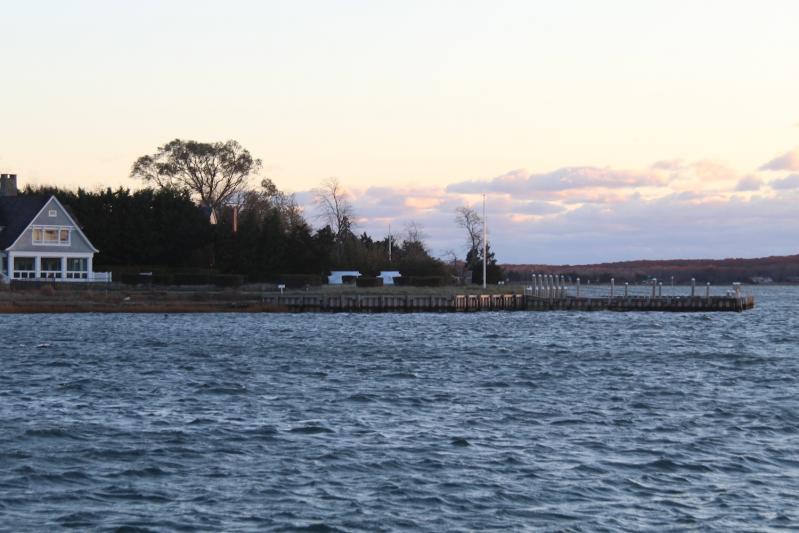The East Hampton Town Trustees heard recommendations from a subcommittee charged with formulating an updated policy on docks on Monday, following an inventory of structures in waterways under their jurisdiction initiated almost two years ago. Although formal language is yet to be drafted, the recommendations and subsequent discussion confirmed their understanding that there are noncompliant structures in trustee waters that will have to be brought into compliance or removed, and that in some instances previously issued permits could be revoked.
The inventory followed a 2021 moratorium on new construction of residential docks, catwalks, floating docks, floating structures, and platforms, implemented after a split vote to permit construction of an 80-foot floating dock on Three Mile Harbor, the first such approval in more than three decades. The trustees voted on Oct. 13 to extend the moratorium a second time in order to complete the survey and develop recommendations.
The trustees banned applications for docks in most waterways under their jurisdiction in 1984, extending the prohibition to all but the eastern shore of Three Mile Harbor in 1987. The question that John Aldred identified as of greatest importance at the trustees’ Oct. 13 meeting — whether or not to extend a new dock prohibition to the remaining unprohibited portion of Three Mile Harbor — was left unanswered, pending further discussion and a public hearing planned for the trustees’ next meeting, on Nov. 13.
A more pervasive problem, in the trustees’ eyes, may be docks and other structures that have been altered or expanded beyond what was permitted. The trustees aim to compel owners of structures determined noncompliant to resolve that condition either by removing the altered or expanded portions or via application for a trustee permit for the expansion or alteration, to be made within a time span to be determined, though a six-month span was considered. Neither action would be required should owners prove that the structure does in fact comply with the permit issued.
The policy would apply to unpermitted expansions from the present to the next inspection, the latter another point of consideration: Mr. Aldred said that the subcommittee considered having future surveys conducted by drone on an annual or biennial basis, and physical inspections at longer intervals, which in Monday’s discussion ranged from four to 10 years.
With regard to pilings, the subcommittee recommended that they should remain installed year round, though discussion included addressing them on a case-by-case basis. The seven trustees present on Monday agreed with the recommendation that freestanding pilings and those used to support floating docks and components continue to incur an annual charge. The present rate is $18 each.
Also agreed to was the recommendation that floating docks and removable ramps, walkways, or components must be removed by Dec. 1 of each year. Given his own surveys, “I think this board should request some kind of inspection,” Mr. Aldred said. Timothy Treadwell, the town’s senior harbormaster, who participated in the discussion, said that he could conduct inspections during the winter.
In Georgica Pond, the trustees agreed with the subcommittee’s recommendation that a loophole that allowed a platform that floated when the pond’s level was high and sat on the bottom when it was low be closed, extending the ban on docks enacted there in 1984 to include platforms and bottom steps.
Also to be defined is a policy regarding docks that were permitted but never built. The recommendation is that the property owner be given three years to obtain all required permits, start construction, and close out the trustee permit. The trustees may revoke the permit if the dock has not been installed by the end of the third year. The same would hold for dilapidated structures, with the requirement that they be brought to usable condition by the end of the third year or their permits be subject to revocation.
Another recommendation was that dock owners who sell their property be required to notify the trustees of their intent to transfer the property and include the purchaser’s contact information. Failure to comply could result in revocation of permission for a dock.
Owners of unpermitted structures, the subcommittee recommended, should be contacted and required to produce any and all permits within 60 days, demonstrating that the dock was installed prior to the prohibition enacted in 1984 or 1987. If that requirement could not be met, the trustees would determine whether the dock could remain or would have to be removed.




